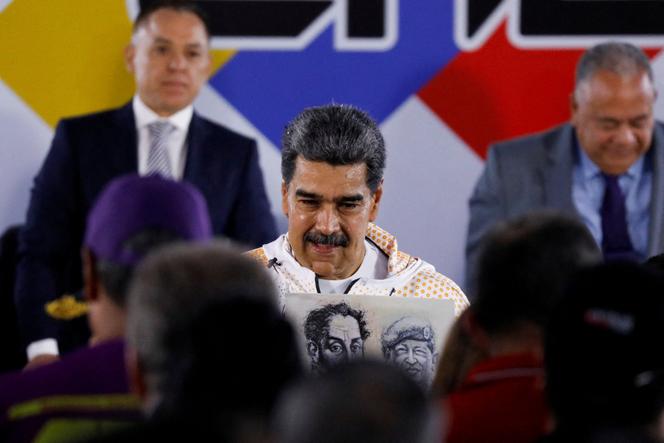


On Tuesday, April 9, during an official visit to Caracas, Colombian President Gustavo Petro called for "political peace in Venezuela." As the campaign for the July 28 presidential election gets going, the political climate in Venezuela is tense. The government of President Nicolas Maduro, who is seeking a third term in office, seems determined to not yield an inch. Meanwhile, the opposition is struggling with its own internal divisions.
The accord commonly known as the Barbados Agreement, signed by delegates from both sides in October 2023 as a step toward free and fair elections, is under serious strain. However, according to the main polling institutes, 80% of Venezuelan voters say they are firmly resolved to vote in this election. "Abstention is no longer an option," summarized Luis Vicente Leon of the Datanalisis polling institute. More than 70% of those who intend to vote say they will not vote for Maduro.
Yet, on the ballot that has been issued by the National Electoral Council, Maduro's photo appears 13 times. In addition to his own political party, the United Socialist Party of Venezuela (PSUV), there are 12 other parties, more or less independent of the PSUV, that have chosen Maduro as their candidate. Although 13 candidates have registered – with "12 of whom are from the opposition," insists Maduro – the election will be won either by Maduro himself or by a candidate from the opposition coalition who is acceptable to the Chavist regime.
The original candidate from the Unitary Platform (Plataforma Unitaria, PU), the ultra-neoliberal and radical Maria Corina Machado, was declared ineligible by the Supreme Court. The National Electoral Council refused to register her designated replacement, Corina Yoris. The ousting of these two candidates provoked strong reactions on the international scene. For once, the presidents of Brazil and Colombia distanced themselves from their Venezuelan ally. "There is no explanation, either legal or political, for prohibiting an opponent from being a candidate," said Brazilian President Luiz Ignacio Lula Da Silva. Petro, for his part, denounced "a clearly undemocratic coup." Petro's visit to Caracas sealed a fragile reconciliation.
Two candidates currently represent the PU on the ballot. Zulia state governor Manuel Rosales registered to represent his party, Un Nuevo Tiempo, without consulting his colleagues. Edmundo Gonzalez Urrutia, a little-known former ambassador and political scientist, registered with the endorsement of PU leaders as a potential placeholder. Electoral law in Venezuela allows a party to change its candidate during the campaign up to 10 days before the vote. However, the name and photo on the ballot will be those of the candidate who registered on April 20.
You have 48.11% of this article left to read. The rest is for subscribers only.
